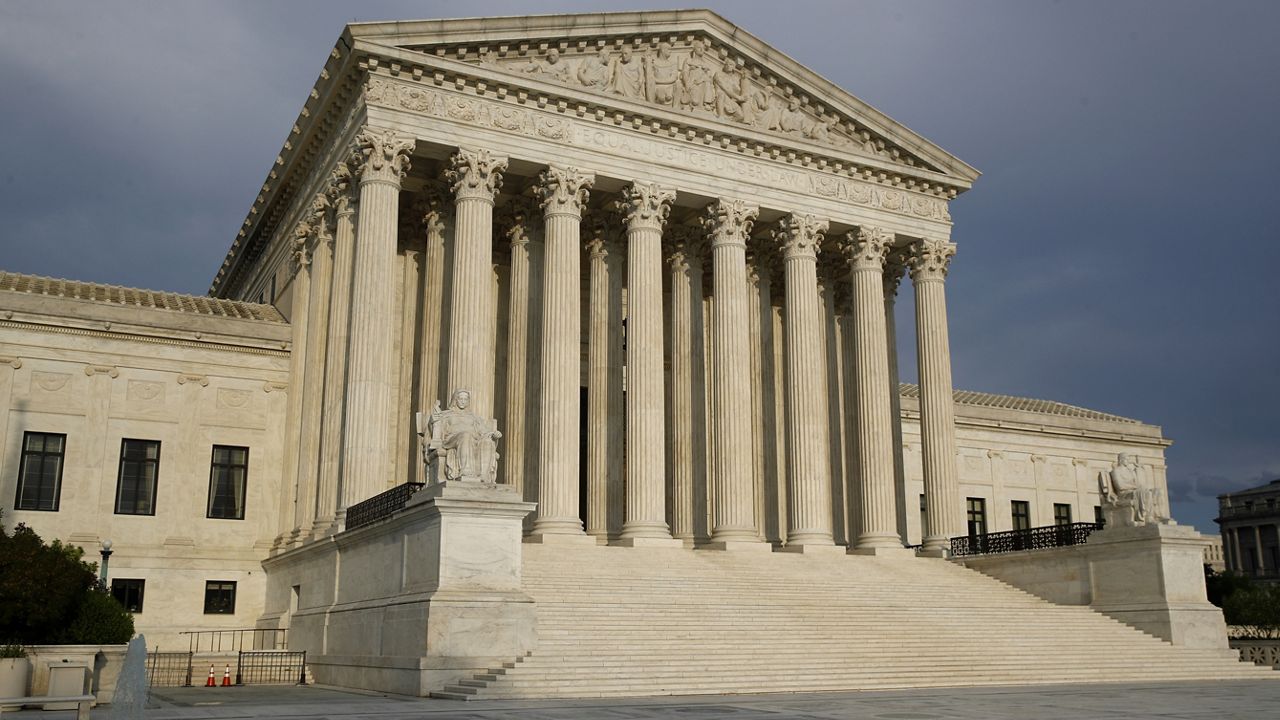House and Senate Democrats introduced legislation which would expand the size of the Supreme Court from nine justices to 13, an effort that is sure to meet steep resistance from Republicans in Congress.
But the bill also lacks the support of one key member of Congress, which will effectively stop the bill in its tracks: House Speaker Nancy Pelosi.
The bill was introduced Thursday morning in front of the Supreme Court building by Reps. Mondaire Jones (D-NY), Jerrold Nadler (D-NY) and Hank Johnson (D-GA) and Sen. Ed Markey (D-MA), alongside advocates for democracy reform.
"How can Americans look at the court and expect it to do equal justice, when it has been so severely political manipulated, and obviously politically manipulated," Rep. Nadler asked at the press conference introducing the bill.
But speaking to reporters on Thursday shortly before the press conference was set to begin, Pelosi said that she does not support the bill and will not bring it to the House floor, effectively killing the bill.
Pelosi said Thursday that she supports President Joe Biden's commission to study expanding the nation's highest court.
The California Democrat said that the idea is one that "should be considered," noting that Biden is "taking the right approach" by having a committee study the matter.
Expanding the court is "not out of the question," Pelosi added, noting "it has been done before" in America's history, " and adding that "the growth of our country, the size of our country, the growth of our challenges" could "necessitate" adding additional justices, but she said she has "no plans" to bring their bill to the floor.
President Biden signed an executive order last week forming a commission to study expanding the court, as well as instituting term limits among the justices, comprised of former federal judges, practitioners who have appeared before the court, and democracy reform advocates.
In launching the review, Biden fulfilled a campaign pledge made amid pressure from activists and Democrats to realign the Supreme Court after its composition tilted sharply to the right during former President Donald Trump’s term.
Trump added three justices to the high court, including conservative Justice Amy Coney Barrett, who was confirmed to replace liberal Justice Ruth Bader Ginsburg just days before last year’s presidential election.
The makeup of the Supreme Court, always a hot-button issue, ignited again in 2016 – an election year – when Democrats declared that Republicans gained an unfair advantage by blocking Obama’s nomination of Judge Merrick Garland to fill the seat left empty by the death of conservative Justice Antonin Scalia.
Then-Senate Majority Leader Mitch McConnell (R-KY) refused to even hold hearings on filling the vacancy, saying that the next Supreme Court justice should be chosen by the next president, even though it was more than six months until the next presidential election.
“The American people are perfectly capable of having their say on this issue, so let's give them a voice: Let's let the American people decide,” McConnell said in Feb. 2016. “The Senate will appropriately revisit the matter when it considers the qualifications of the nominee the next president nominates, whoever that might be.”
In the wake of McConnell’s power play, some progressives have viewed adding seats to the court or setting term limits as a way to offset the influence of any one president on its makeup. Conservatives, in turn, have denounced such ideas as “court-packing” similar to the failed effort by President Franklin D. Roosevelt in the 1930s.
The 36-member commission has been instructed to spend 180 days studying the issues, but it was not charged with making a recommendation under the White House order that created it.
Biden pledged to create the commission during an October television interview, and has promised to appoint the first Black woman to the nation’s highest court.
The Associated Press contributed to this report.



